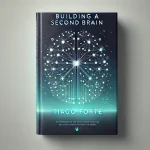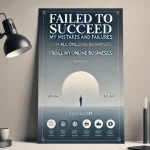Does this case sound familiar?:
You are in your class, sitting with your friends and teacher, having a pretty usual class just like any other. But your teacher all of a sudden pulls out that really hard and unexpected question out of nowhere, which your friends are hopelessly discussing the possible answer about, in panic. Meanwhile, you realize that you somehow know the freaking answer, but still, perhaps due to the reaction of your friends or the objective difficulty level of the question, but mainly the fear of being wrong, you doubt it and are uncertain about your answer.
However, you are aware of your possible popularity in your class, praises from your teacher whom you always wanted to prove yourself to—because you maybe think you’re viewed as an underdog the whole time but have a great interest in their class—in case you tell your answer and it turns out to be correct.
At this point, you are facing the end bosses of modern psychology, you are combating the ‘Impostor Syndrome’, ‘Pluralistic Ignorance’ and ‘Social Comparison Theory’ all at once, or at least you try to.
Not long after, while you’re still trying to survive that war against your mind and to weigh the positive and negative consequences of telling your idea, and trying to make the optimal decision, all of a sudden, one of your classmates raises their hand and shouts out the same exact answer, word for word, as you would have said it, hoping it to be true but not really caring if not, looking into your teacher’s eyes with confidence, and already being admired by your class for their bravery and intelligence because of their innovative and interesting answer.
You, however, with a loser mindset, who already acted like a p, envy them and hope their—but also YOUR—answer to be wrong. After a great silence for three to four seconds, your teacher smiles at your classmate and says “Well done XY, it couldn’t be more correct”. All your class is highly impressed, maybe not applauding, but one can sense the true celebration and admiration of everybody, besides you.
You become red like a tomato and your heart beats get faster and faster, your brain betraying you as if it wasn’t holding you back from taking action just now and telling you “Oh you idiot, what have you done? You knew the freaking answer! Why didn’t you just tell it? You could have been the ONE.” You regret the shit out if it, but it sure is too late.
Despite the exaggerated description in this case, the majority of people have surely experienced a similar incident whether in school or somewhere else. Imagine experiencing such a huge regret at 80—at a period of your lifetime where there is no way back—as you review your life, because of opportunities, capabilities, interests, talents and goals you have never taken action upon, which you realistically could have achieved but you rather let them all pass by. How painful would that be?
I had came across a very inspiring reel—a clip of an interview with Jeff Bezos where he mentions this “Regret Minimization Framework”. I indeed liked it so much that I ended up creating a reel out of it myself, just like the Steve Jobs one. You can watch it here if you are interested.
Jeff Bezos’ “Regret Minimization Framework” works like this:
- Project yourself into the future: Imagine yourself at an advanced age (e.g., 80 years old).
- Look back on your current decision: Reflect on whether you would regret not having taken action.
- Ask yourself: If you don’t do this, will you regret it in the long run?
- If the answer is yes, you should likely take the plunge.
- If the answer is no or uncertain, the decision might not be as crucial.
I’ve applied this method to my life, and asked myself: “Will I regret for taking action towards my dreams and brutally fail afterwards in these early ages?” The answer tended to come as a very clear “No! I indeed would regret the opposite, never committing to make it to my goals and having a lingering doubt about whether I could actually achieve them, afterwards.” So I radically blind-jumped into a business journey after my high school graduation.
I’ve invested more money, time and energy in this whole business and self improvement journey in last 6 months than probably my whole life. I’ve started several businesses, attended two partnerships, got invaluable learnings and experiences. If you would like to get an idea about what I’ve done and my current status, you can watch the quick summary of my whole journey in the last 6 months in this two-minute reel.
However, the importance of the good old persistency and consistency are the most valuable learnings, we will address my individual learnings and experiences that I’ve acquired during this journey in various business models—what I will definitely apply, what I’ll avoid in the future—in another blog post in detail.
But the main question is: “Do I regret spending so much money, time and energy on something that eventually failed?”
First, it is really a perspective thing—it is how you view things. For someone who views this like this and considers it to be a commodity-waste and a failure, it would be clear regret.
But in life I only regret things that I’ve not taken action upon, instead of the ones I’ve done. So just like indicated; I couldn’t buy these learnings and experiences from this “failure” with money if I wanted to. I now know what works and what doesn’t. I discovered my inclinations to focus on; my skills to practice; my weaknesses to improve, and strengths that I am confident with, and meanwhile developed all of them. I now know what to do and avoid next. I sense a huge forward dash in my personal growth, in the long run, in areas and topics I want to become a Master in, but now is sure the time for the Apprenticeship.
My final answer to that question is:
Absolutely not! What I regret is not taking action and start improving myself before. What I regret is not identifying my skills, inclinations, interests—what I want to do with my life, before.
But never the “taking action and actually trying to achieve” part, it is in fact the one, that I am despite all “failures” the most proud of.
With that, I encourage everyone—beyond the “start now” cliché,—to take the relevant action for their goals immediately, after applying the Regret Minimization Framework to their situation and asking them:“Will I regret not having tried this when I am 80 years old?”







